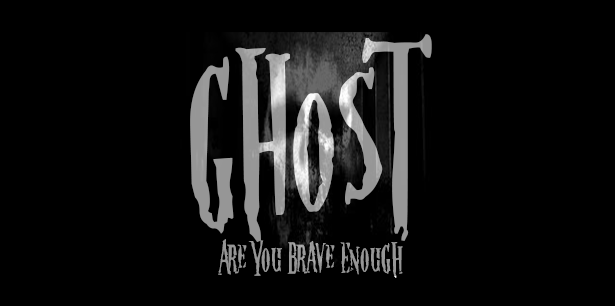
Once whispered tales of a malevolent witch, Molly Leigh, tormenting the virtuous denizens of Burslem from beyond the grave, cast a chilling pall over th
e town. Rumor had it that she, alongside her companion, a blackbird steeped in arcane lore, wove dark spells to afflict the townsfolk with misfortune, curdle milk, and shatter livelihoods. An eerie enchantment even ensnared the vicar, Pastor Thomas Spencer of St. John's Church, as he appeared perpetually ensnared in a drunken stupor for a span of three harrowing weeks.
Legend unfolds, revealing how the virtuous pastor himself, postmortem, beheld the spectral visage of Molly within her humble abode, compelling him to employ fervent prayers to exorcise her tormented spirit. He dared to disturb her final resting place, casting her living blackbird into her eternal slumber, its feathers mingling with her remains, and sealing her away in an inverted repose.

Yet, amidst this dark tapestry of malignancy, a disquieting truth emerges. Molly Leigh, a hapless victim of a centuries-old smear campaign, has found solace in the pages of her last will and testament, painstakingly recovered from the forgotten vaults of The Sentinel's archives. Though a typed replica, it illuminates a remarkable tale.
Inscribed on the twenty-fifth day of March, during the twenty-first year of
King George II's reign, in the fleeting moments before her departure from this mortal plane, Molly bestowed testament to her wealth and estates scattered across Burslem and Newbold Astbury, proving her standing as a woman of means.
The desolate portrait painted of Molly, residing on the outskirts of Burslem, consumed by solitude and nursing an inebriated existence, shunned by a superstitious village due to her
repugnant countenance, proves a fallacy. Her cottage nestled in Jackfield, near the very ground where Vale Park now holds court, belies the narrative spun by time.
Molly's lineage, her aunt Margaret Booker, and her cousins Ann Donbavin and Luke Bennett, all found themselves beneficiaries of her benevolence.
As the shadows lengthened with the passing of her aunt, mother, and cousin, Molly allotted an equal share of £400 to be divided among Ann's offspring. Luke, her faithful cousin, would inherit her silver plates and utensils.
Despite her solitary existence, Molly discovered companionship in the form of Alice Beech, residing upon Wall Flatt, Molly's own land in Burslem. Alice, a witness to Molly's will, became the rightful heir to Wall Flatt upon Molly's departure.
The testament begins by acknowledging Molly's "honored
mother," Sarah Booth, bestowed with the rent and profits garnered from Molly's Jackfield estate. However, her father-in-law, Joseph Booth, found himself barred from any claim to Molly's

possessions, as dictated with unwavering finality.
Could it be that Molly, referring to Joseph Booth as her father-in-law, obscured the truth, implying a stepfatherly relation? Only whispers linger on this matter.
Nevertheless, Molly's kinfolk found solace in her legacy. Gold mourning rings were bestowed upon all, including the excluded Joseph Booth. But it was the downtrodden souls of Burslem who bore witness to Molly's true essence.
A humble sum of twenty shillings, an annual offering, was designated for Alice Beech, to be passed down to her descendants in perpetuity. This humble coinage sought to procure forty-sixpenny loaves, nourishing the destitute souls and widows of Sneyd and Burslem.
Once Molly's mother, aunt, and cousins had traversed the threshold of existence, she entrusted Mr. Joseph Lovatt the Younger of Penkhull with the task of liquidating her lands and tenements. Only Wall Flatt, safeguarded for Alice Beech's descendants, eluded the liquidation. The proceeds would fashion "a hospital in Burslem," a sanctuary for the multitudes of impoverished women deemed worthy by Mr. Lovatt.
The remaining profits would sustain the indigent women of the parish, nourishing them with sustenance and adorning their forms with garments befitting their station.

Thus, the revelation manifests with disquieting clarity. Far from the malignant sorceress that folklore etched upon her visage, Molly Leigh emerges as an embodiment of kindness and magnanimity, a generous benefactor to the very town that cast her as the wretched witch.
In an era rife with superstition, where the specter of witch trials loomed ominously, women faced a precarious existence. Molly, with her unattractive countenance and solitary life, became an unwitting scapegoat. The echoes of jeering and mockery targeted the ugly and disfigured, amplified through the generations.
Unyielding amidst her plight, Molly confronted her nemesis, Pastor Thomas Spencer, a man of the cloth teetering on the precipice of addiction. His clerical life, a solitary affair, entwined with the perpetual need for funding from the parishioners. Molly, called upon for financial support, raised her voice in defiance, denying him the means to satiate his thirst with church coffers.
Indeed, Molly Leigh, a woman of unwavering faith, stood as an exemplar of decency and virtue. Her unfortunate appearance, an invitation to ridicule, belied her true character. In the annals of Stoke-on-Trent, Molly Leigh's legacy resonates as the first whispers of feminism, a resolute force that championed the creation of Burslem's inaugural women's shelter. She safeguarded her mother, Sarah, ensuring her financial independence rather than subjecting her to the dominance of Sarah's husband.
The care of the destitute she entrusted to her confidante, Alice





Fantastic read, thanks Gary....what a wonderful woman 💜
Really interesting, Thank you Gary x